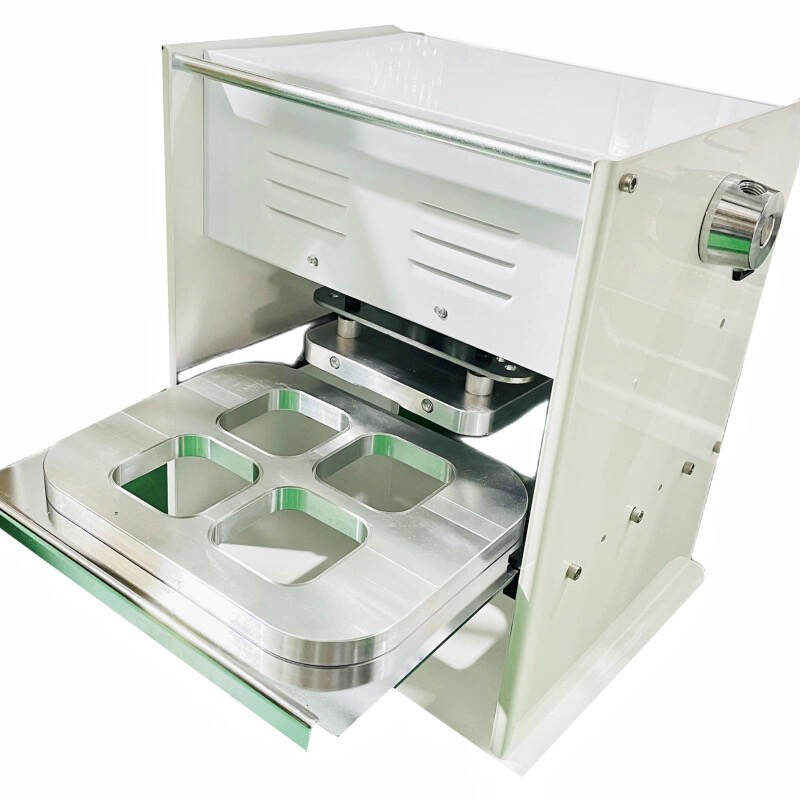

Email format error
Email cannot be empty
Email already exists
6-20 characters(letters plus numbers only)
The password is inconsistent
Email format error
Email cannot be empty
Email does not exist
6-20 characters(letters plus numbers only)
The password is inconsistent



In the dynamic world of manufacturing, encapsulation machinery plays a pivotal role in producing high-quality products across various industries. For businesses looking to enhance their production lines, partnering with a reliable encapsulation machinery exporter can make all the difference. In this blog, we’ll delve into what encapsulation machinery is, why it’s essential, and how choosing the right exporter can impact your business’s success.
Encapsulation machinery is designed to encase substances, such as powders, liquids, or granules, within a protective coating. This process is crucial in industries ranging from pharmaceuticals to food and beverage, as it helps preserve the integrity and effectiveness of the products. Encapsulation can improve the stability, taste, and controlled release of active ingredients, making it a key component in product development.
There are various types of encapsulation machines, including capsule fillers, coating machines, and microencapsulation systems. Each serves a unique purpose and caters to different needs within the manufacturing process. For instance, capsule fillers are used to create capsules that hold powder or liquid substances, while coating machines apply protective layers to tablets or other forms.
Encapsulation machinery is indispensable for several reasons:
1. Product Protection: It shields sensitive ingredients from environmental factors such as moisture, light, and oxygen. This protection is essential for maintaining the product's potency and extending its shelf life.
2. Controlled Release: Encapsulation allows for the controlled release of active ingredients. This means that substances can be released at specific times or under certain conditions, enhancing their efficacy.
3. Improved Taste and Odor Masking: In the food and pharmaceutical industries, encapsulation helps mask unpleasant tastes or odors, making products more palatable and user-friendly.
4. Enhanced Stability: Encapsulation improves the stability of products, ensuring that they remain effective and safe for consumption over time.

Encapsulation machinery exporters play a crucial role in the global supply chain. They bridge the gap between manufacturers and the advanced machinery needed for efficient production. When selecting an encapsulation machinery exporter, consider the following factors:
1. Expertise and Experience: Choose an exporter with a proven track record in the industry. Experienced exporters understand the nuances of encapsulation machinery and can provide valuable insights and recommendations.
2. Quality and Reliability: The quality of machinery is paramount. Reliable exporters offer high-quality machines that meet international standards and are built to last.
3. Technical Support and Service: A good exporter provides comprehensive technical support and after-sales service. This ensures that any issues with the machinery can be quickly resolved, minimizing downtime and maintaining production efficiency.
4. Custom Solutions: Some exporters offer customized solutions tailored to specific production needs. This can be particularly beneficial for businesses with unique requirements or those looking to innovate.
5. Reputation and Reviews: Research the exporter’s reputation in the industry. Customer reviews and testimonials can provide insights into their reliability and customer service.
Selecting the right encapsulation machinery exporter involves careful consideration. Here are some tips to help you make an informed decision:
1. Conduct Research: Start by researching potential exporters. Look for companies with a strong presence in the industry and positive feedback from previous clients.
2. Evaluate Their Product Range: Assess the range of encapsulation machinery they offer. Ensure they provide the type of machinery that meets your specific production needs.
3. Check Certifications: Verify that the exporter’s machinery meets international quality and safety standards. Certifications can be an indicator of the machinery’s reliability and performance.
4. Request Demonstrations: Whenever possible, request demonstrations of the machinery. This allows you to see the equipment in action and evaluate its functionality.
5. Compare Pricing: While cost is an important factor, it should not be the sole criterion. Compare the pricing with the quality and features of the machinery offered.
6. Consider After-Sales Support: Ensure the exporter provides robust after-sales support, including training, maintenance, and troubleshooting.
As technology advances, so does the field of encapsulation machinery. Innovations in automation, precision, and material science are driving the development of more efficient and versatile encapsulation solutions. Encapsulation machinery exporters are at the forefront of these advancements, offering state-of-the-art equipment that meets the evolving needs of various industries.
In the future, we can expect to see more intelligent encapsulation systems with enhanced capabilities, such as real-time monitoring and data analysis. These advancements will further improve product quality, reduce production costs, and streamline manufacturing processes.
In summary, encapsulation machinery is a critical component of modern manufacturing, offering numerous benefits in terms of product protection, controlled release, and stability. Partnering with a reputable encapsulation machinery exporter can significantly impact your business’s success by providing access to high-quality equipment and expert support.
By carefully selecting the right exporter, businesses can ensure they have the best machinery to meet their production needs and stay ahead in the competitive market. As the industry continues to evolve, staying informed about the latest advancements and choosing a forward-thinking exporter will be key to achieving long-term success.
So, whether you’re a seasoned manufacturer or a newcomer to the industry, understanding the role of encapsulation machinery and finding the right exporter is essential for optimizing your production processes and delivering high-quality products to your customers.